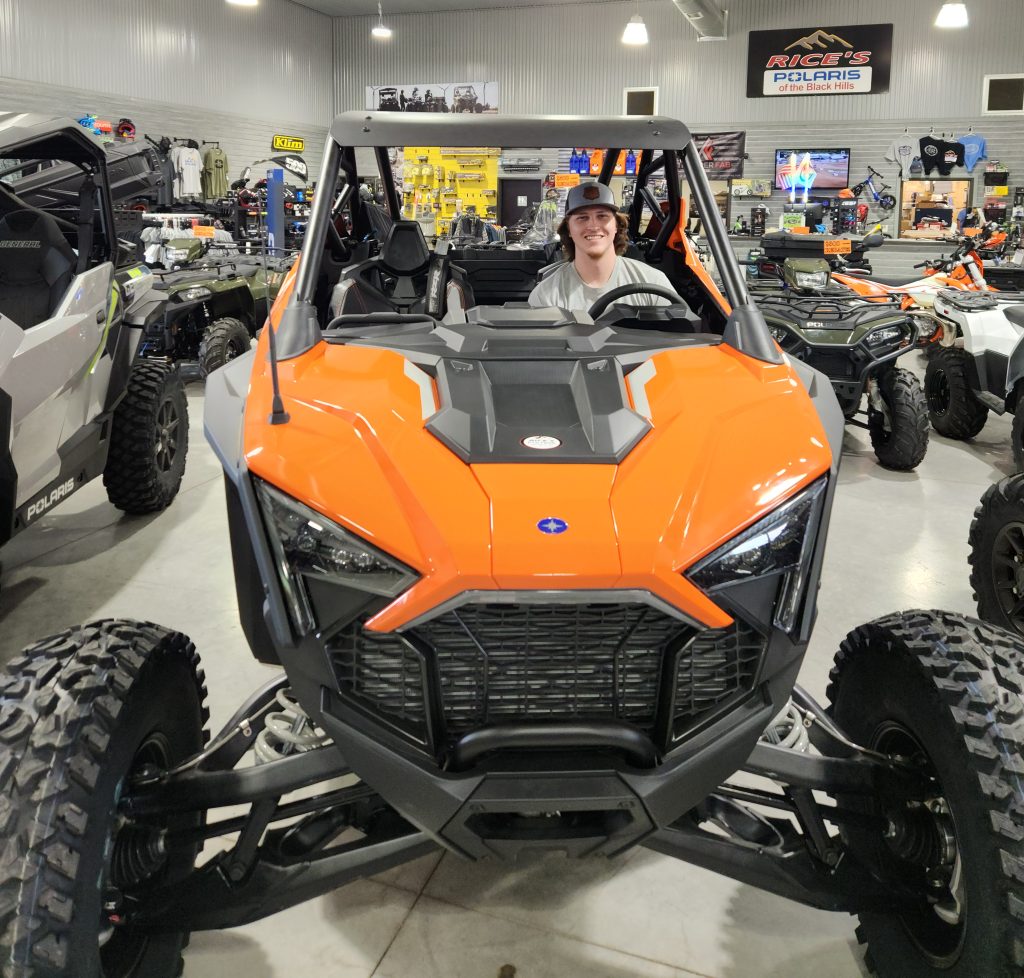
For Levi Newton (Power Sports & Marine Technology ’19), attending Mitchell Tech was a bit like coming home.
“Growing up on the farm, the things that we got early in life to ride weren’t new dirt bikes. They were old dirt bikes, and they maybe
didn’t run. They might be sitting out in a pasture or the weeds and not running, so if we wanted to ride it, we had to get it running. I really enjoyed getting something out of the weeds and getting it running and being able to run it.”
He was looking for a program that would allow him to expand upon the trial-an-error mechanic work he had grown accustomed to, and his Power Sports & Marine Technology education was exactly the hands-on experience he’d hoped to find.
“A lot of the time is in the shop, and you get to do a lot of shop work, which prepares you well for the field, because you’re already doing it. There is classroom time, but there’s way more shop time, and it’s nice that you’re down there, in the shop with the teachers, who are teaching you what you need to know,” Newton said. But he didn’t expect some of the perks that Mitchell Tech offers.
“I ended up with and appreciated the small-town feel,” the Parkston, S.D., native said. “It wasn’t necessarily something I was looking for, nor what I expected. It just ended up being a good thing. When we were doing our bike build, toward the end of the year, we were crunching on time, and we were all – classmates and teachers – staying late after school to get it done and get it on the trailer to get it to Minnesota. We all took our personal time to get it done.”
That experience is unique to Mitchell Tech, he said.
“You definitely get more of that one-on-one time with your instructor, versus an instructor who has to teach everyone as a group. Not necessarily everyone learns that way as a group. Some need that one-on-one instruction.”
And the relationship between him and his instructors has continued since he concluded his time on campus.
“The teachers don’t just drop you and expect you to go out and do it on your own after graduation,” he said. “Even to this day,
I still call and text both Rayne Guindon and Chris Degen for help from time to time. I don’t think instructors at every school would do that. Smaller numbers help in that case. If you went to a school with 100 kids, you’re not going to have your instructor’s number, and they won’t have yours. It’s that small-town feel with the school – they’re going to help you where and when they can, just like any other small town.”
Now, Newton works as a technician at Rice’s Rapid Motorsports in Rapid City, S.D., and is adjusting to working with a larger team in a larger shop in a bigger community. But he carries with him the workmanship and small-town mentality he learned growing up working at his father’s machine shop and that was fostered during his time at Mitchell Tech. When collaboration is necessary for complicated projects, Newton said he appreciates the teamwork and communication skills he gained as part of his Mitchell Tech education.
“The dealership I work at is pretty big, so I don’t really deal with customers very much, but my name is on the work order, so I definitely always want to do the best I can and have a good reputation,” he said. “Typically, you’re just by yourself and working on
your machines independently, but sometimes you need help, so it’s good to be able to go to them and get ideas and help you or you help them.